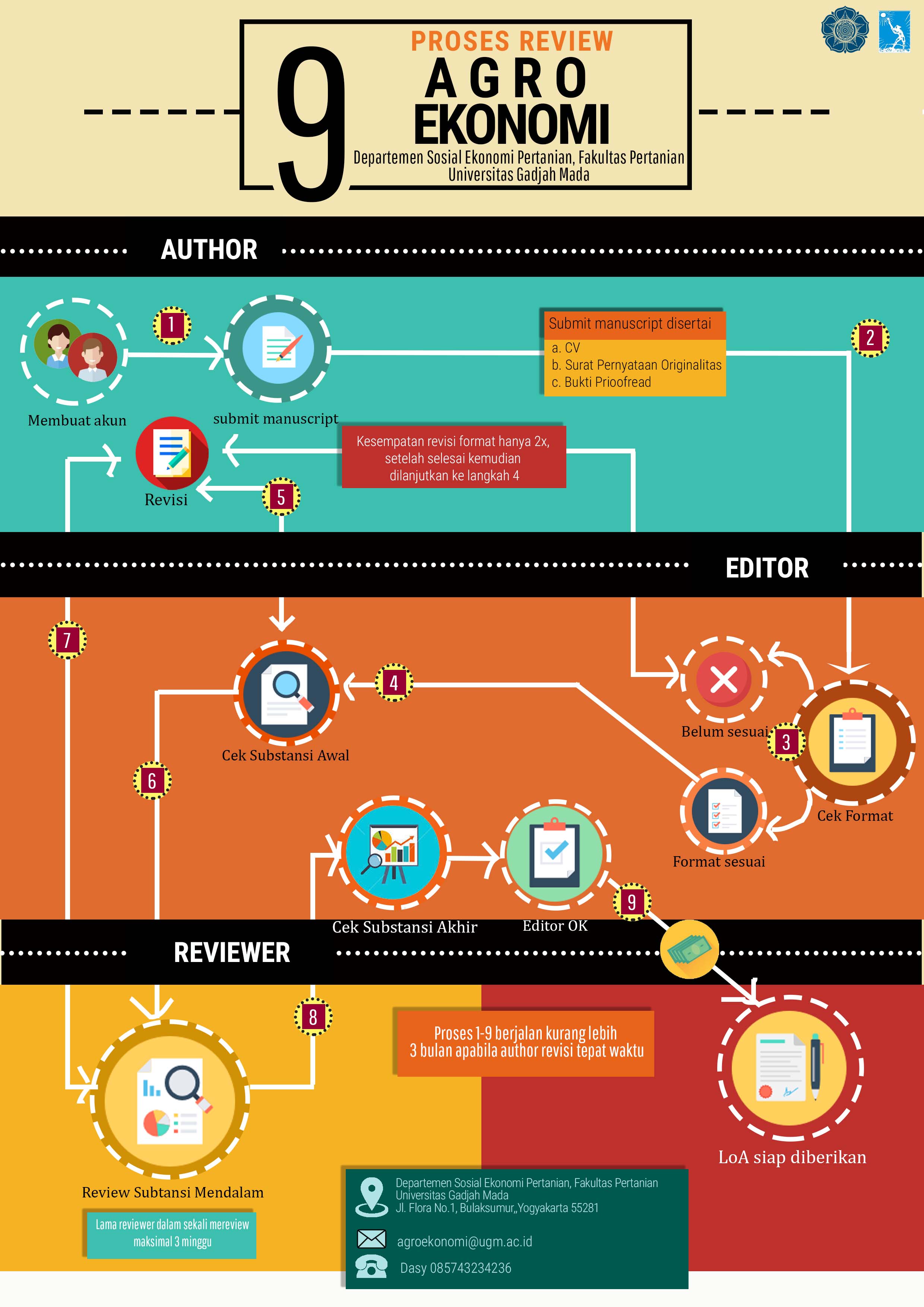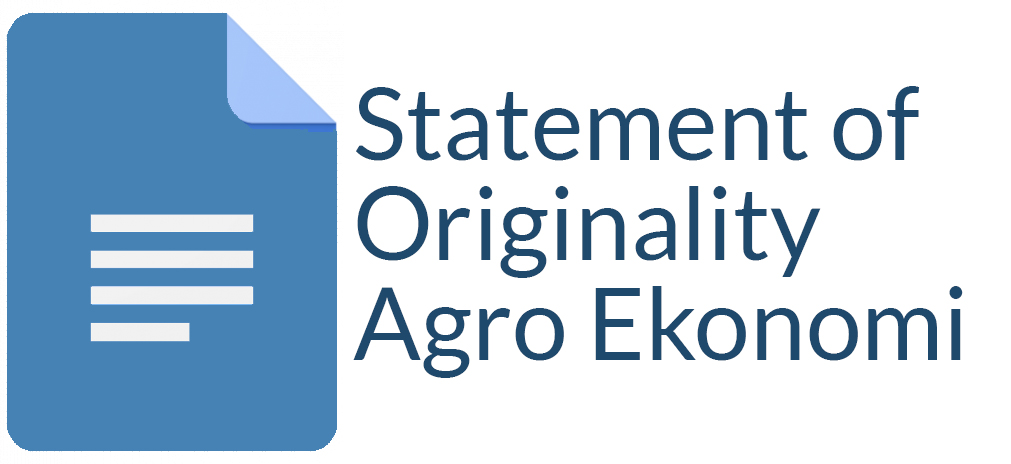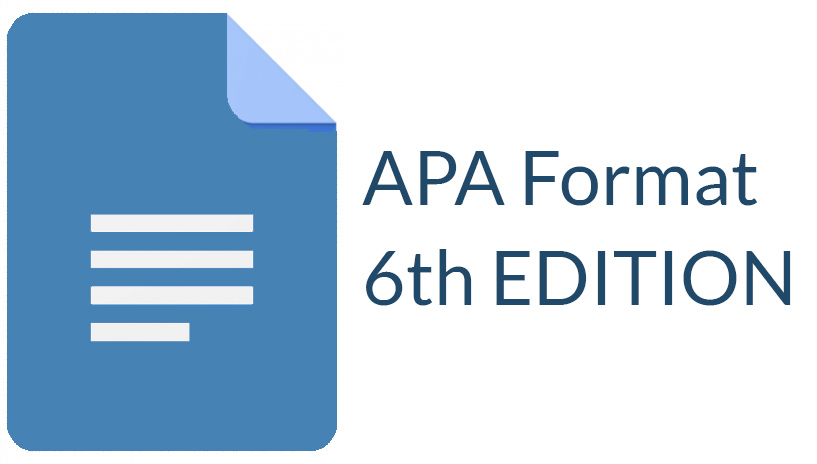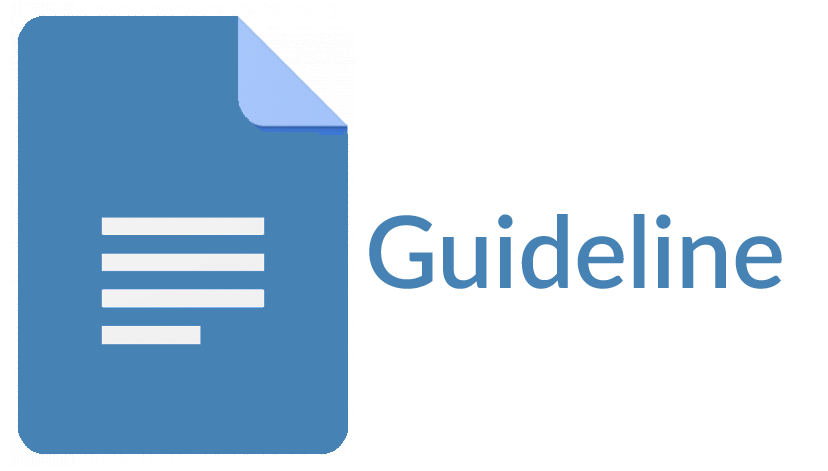Supply Response Analysis Of Paddy In Kediri : Managerial Implications
Vifi Nurul Choirina(1*), Slamet Hartono(2), Any Suryantini(3)
(1) Lecturer of Agrotechnology Department, Universitas Islam Kadiri Kediri
(2) Lecturer of Social Economic of Agriculture Department, Faculty of Agriculture, Universitas Gadjah Mada
(3) Lecturer of Social Economic of Agriculture Department, Faculty of Agriculture, Universitas Gadjah Mada
(*) Corresponding Author
Abstract
Research of farmer’s response analysis to price is important to increase paddy production in Kediri. Farmers are conducted as the object of the research because they are the decision maker on all of farming activities. This study is aimed to know the effect of harvest area response, productivity response, supply response paddy, and managerial implications in Kediri. The analysis method used the Nerlove approach through harvest area response and productivity response. Data were collected annually from 1992 to 2015. The result showed that harvest area in previous year was the significant factor to the harvest area. Grain price, fertilizer price index, rainfall, harvest area in previous 2 years and 3 years had no significant effect. Factors which had significant impact for the productivity were grain price and productivity in the previous year, but fertilizer price index, harvest area, and rainfall had no significant effect. Paddy supply-elasticity in short term and long term was inelastic so that supply paddy was unresponsive on grain price changing. Managerial implication formulation consists of procedural implications and policy implications. Procedural implications included the use of a transplanter, jajar legowo system, use of fertilizer in 6 right-ways completed with a demonstration plot. The policy implication is was composed by price and non-price policies. Price policies were showed by costs of good sold which was supported by coopertaion between farmers and BULOG and the use of combine harvester. Non-price policies were embodied with the increasing of cropping index and wetland transformation into settlements.
Keywords
Full Text:
PDFReferences
Badan Pusat Statistik. 2015. Kabupaten Kediri Dalam Angka 2015, Bab V Pertanian, Tanaman Pangan. Kediri : BPS Kabupaten Kediri Jawa Timur.
Citra Indonesia. 2015. Diunduh di http://citraindonesia.com/201509/ [internet], accesed 12 April 2016.
Deptan Jatim. 2014. Rencana Strategis (Renstra) Dinas Pertanian Provinsi Jawa Timur Tahun 2009-2014 (Revisi). Surabaya : Dinas Pertanian Provinsi Jawa Timur.
Firdaus, M. 2008. Manajemen Agribisnis. Jakarta : Bumi Aksara.
Garside dan Hasyimi. Simulasi Ketersediaan Beras di Jawa Timur. JITI 14 (1): 47-58
Gujarati, D. 2005. Ekonometrika Dasar. Penerjemah: Zain dan Sumarno. Jakarta : Penerbit Erlangga.
Hutahuruk, J. 1996. Analisis Dampak Kebijakan Harga Dasar Padi dan Subsidi Pupuk terhadap Permintaan dan Penawaran Beras di Indonesia. Program Pasca Sarjana. IPB.
Leo, Zukhiri Agusty. 2000. Respon Penawaran Padi di Indonesia. Bogor : IPB.
Oktavianto, L.K. 2009. Analisis Respon Penawaran Kelapa Sawit di Indonesia. Fakultas Ekonomi dan Manajemen. IPB. Bogor.
Purwantini, T.B., Ariani Mewa, Marisa Yuni. 2002. Analisis Kerawanan Pangan dalam Perspektif Disentralisasi Pembangunan di Nusa Tenggara Timur. Pusat analisis ekonomi dan Kebijakan Pertanian. Bogor.
Singarimbun. 1995. Metode Penelitian Survei. Jakarta : LP3ES.
Sugiyono. 2014. Metode Penelittian Bisnis.. Bandung : Alfabeta.
Article Metrics
Refbacks
- There are currently no refbacks.
Copyright (c) 2016 Agro Ekonomi

This work is licensed under a Creative Commons Attribution-ShareAlike 4.0 International License.
View My Stats











